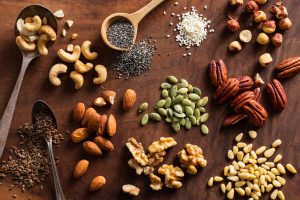
Key relevance of monounsaturated fats. With their many advantages for heart health, weight control, blood sugar regulation, inflammation reduction, and cognitive function, monounsaturated fats are a crucial component of a balanced diet. Consuming foods high in monounsaturated fats, such avocados, nuts, seeds, olives, and olive oil, can help you stay healthy overall and lower your chance of developing chronic illnesses. By making these healthy fats a regular part of your meals, you can enjoy both exquisite flavors and enhanced health benefits.
KEY RELEVANCE OF MONOUNSATURATED FATS
When incorporated into a balanced diet, monounsaturated fats—which are frequently present in a variety of plant and animal foods—can provide a number of health advantages. Unlike saturated and trans fats, monounsaturated fat have good impacts on heart health and overall well-being. Here are some important reasons why including monounsaturated fats into your diet is beneficial.
1. Promotes Heart Health

One of the most well-known benefits of monounsaturated fat is their ability to improve heart health. These fats help reduce bad cholesterol levels (LDL) while increasing good cholesterol levels (HDL). This balance helps lower the risk of heart disease and stroke. Studies have shown that diets rich in monounsaturated fat can reduce the incidence of cardiovascular issues.
2. Supportss weight management;
Monounsaturated fat can aid in weight management by promoting a feeling of fullness and reducing overall calorie intake. Unlike some other fat, they are metabolized in a way that can help control appetite and prevent overeating. Including foods rich in monounsaturated fats in your diet can contribute to maintaining a healthy weight.
3. Regulates Blood Sugar Levels;

Monounsaturated fat have been shown to improve insulin sensitivity and regulate blood sugar levels. This is particularly beneficial for individuals with type 2 diabetes or those at risk of developing the condition. By stabilizing blood sugar, these fats help manage diabetes more effectively and reduce the risk of complications associated with fluctuating glucose levels.
4. Reduces Inflammation;
Chronic inflammation is linked to numerous health problems, including heart disease, arthritis, and certain cancers. Monounsaturated fats have anti-inflammatory properties that help reduce inflammation in the body. This can lead to a lower risk of chronic diseases and improve overall health.
5. Supports Brain Health;

Key relevance of monounsaturated fats
The brain relies on healthy fats for proper function, and monounsaturated fat play a key role in maintaining cognitive health. These fats help protect brain cells from damage and support the production of neurotransmitters. Consuming monounsaturated fat can enhance memory, improve mood, and reduce the risk of cognitive decline and neurodegenerative diseases.
Sources of Monounsaturated Fats;

Key relevance of monounsaturated fats
Incorporating monounsaturated fats into your diet is easy and delicious. Here are some excellent sources:
– Olive Oil:
Use extra virgin olive oil for cooking, salad dressings, and dips
– Avocados:
Enjoy avocados in salads, sandwiches, or as guacamole.
– Nuts and Seeds:

Key relevance of monounsaturated fats
Almonds, cashews, peanuts, and sunflower seeds are great snacks or additions to meals.
-Olives:
Eat olives as a snack, in salads, or as part of Mediterranean dishes.
– Canola Oil:
Use canola oil for cooking and baking.
Summary
Monounsaturated fats are regarded “good” fats primarily because they enhance cholesterol profiles and lessen the risk of heart disease and stroke, especially when they replace saturated and trans fats in the diet. They provide essential structural and functional benefits to the organism.